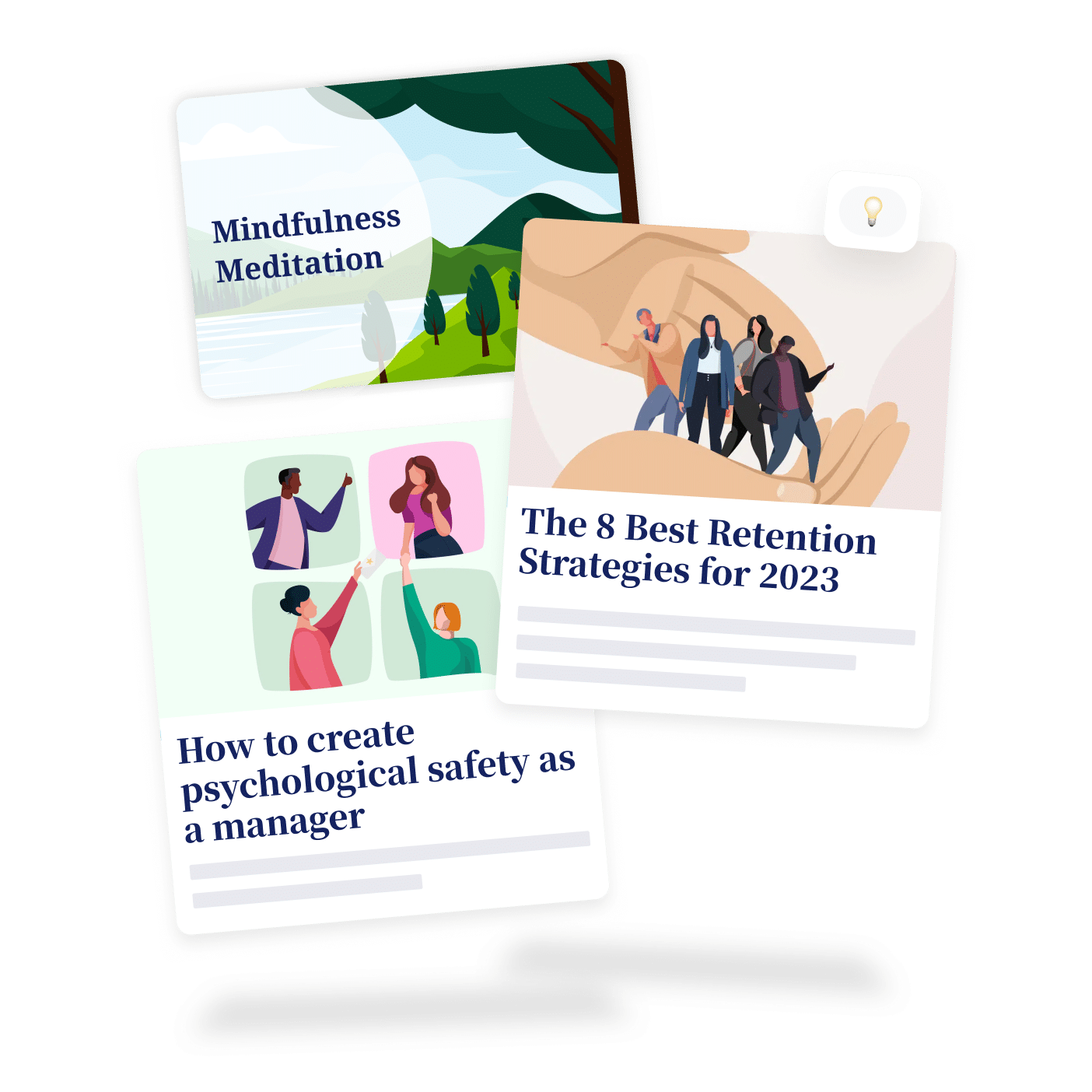The Benefits of Prioritising Mental Well-Being in the Construction & Manufacturing Industries

In the bustling world of manufacturing and construction, employee well-being often takes a back seat. While office employees have benefited from growing workplace well-being initiatives in recent years, construction and manufacturing workers have lacked similar support from their industry. For these workers, factors such as irregular shifts and demanding physical labour can take a significant toll on employee well-being.
In this article, we’ll delve into the challenges that construction and manufacturing workers face, the consequences of neglecting their well-being, and the immense benefits of proactive prevention and support programmes. We will also provide guidance on how HR can take actionable steps to overcome these challenges.
Challenges Faced by Manufacturing and Construction Workers
Trade workers in manufacturing and construction industries often grapple with challenges such as:
- Irregular working hours: Irregular shifts disrupt circadian rhythms, which often leads to sleep disturbances and a constant struggle to balance work and personal life. According to a European Agency for Safety and Health at Work 2023 report, nearly 22% of workers in the manufacturing and construction sectors experience irregular working hours, significantly higher than the average across all industries.
- Physical demands: The nature of construction work is physically demanding; heavy lifting, repetitive tasks, and exposure to adverse weather conditions. These can lead to chronic health issues and physical fatigue.
- Job insecurity: Many construction workers are employed on a project-to-project basis, resulting in job insecurity and financial instability, which can negatively impact their mental well-being.
- High pressure and deadlines: Tight project schedules and the pressure to meet deadlines can lead to stress and anxiety among construction workers, affecting their overall mental well-being.
- Isolation: Construction work often involves solitary tasks or limited interaction with colleagues, leading to feelings of loneliness and mental strain, particularly for workers on remote job sites.
The Consequences of Neglecting Manufacturing and Construction Workers Well-Being
According to a study conducted by HR Locker on 500 construction workers, 78% aren’t comfortable discussing their mental well-being, 40% feel compelled to continue working while suffering from mental well-being issues, and 27% feel unable to take time off to address these needs.
Neglecting the well-being of trade workers affects not only the workers themselves but also their employers. Poor well-being among employees can lead to decreased job performance, poor employee morale, increased safety risks, and higher absenteeism rates:
- Decreased job performance: Poor well-being among employees often results in decreased job performance. Workers may struggle to focus, make errors, and experience reduced productivity, which can impact project timelines and quality of work.
- Poor employee morale: Employees with neglected well-being are more likely to experience lower morale and job satisfaction.
- Increased safety risks: Neglecting well-being can heighten safety risks on construction and manufacturing sites. Workers dealing with mental or physical fatigue are more prone to accidents and injuries, posing substantial risks to themselves and their colleagues.
- Higher absenteeism rates: Employees struggling with well-being issues are more likely to take sick days or leave of absence. Increased absenteeism rates can disrupt project schedules, decrease efficiency, and strain resources.
The Top Benefits of Prioritising Mental Well-Being
Proactive well-being prevention and support programmes can be a game-changer for construction and manufacturing workers and their employers.
When mental well-being is prioritised, a number of positive outcomes can occur as a result. Let’s explore these below:
- Enhanced productivity: Early intervention not only leads to a healthier and happier workforce but also a more productive one. Research by Deloitte in the UK indicates a highly positive case for employers investing in mental well-being, with an average return of £5 for every £1 spent.
- Improved safety: Employees with good mental well-being are more likely to be alert and focused on the job, reducing the risk of accidents and injuries in high-risk environments such as construction and manufacturing.
- Enhanced employee retention: Prioritising mental well-being signals to workers that their health and happiness are valued, which can boost job satisfaction and reduce turnover rates.
- Retaining experienced workers saves companies recruitment and training costs while maintaining a skilled workforce.
- Decreased absenteeism: Mental well-being support and resources can help employees manage stress, anxiety, and depression, reducing the number of sick days taken due to mental well-being related issues. A reduction in absenteeism leads to increased continuity in project timelines and reduced disruptions to production.
- Positive organisational culture: Fostering a culture that promotes mental well-being creates a more compassionate and supportive work environment. Employees are more likely to speak up about mental well-being concerns, reducing stigma and encouraging open communication within the workplace.
Stay up to date and get valuable insights on mental well-being in the workplace. Simply subscribe to our newsletter and receive monthly updates.
How can HR departments provide efficient preventative care and support? Let’s explore tangible solutions below:
- Provide practical resources: Focus on compiling and sharing resources provided by industry associations specific to manufacturing and construction. For example, in the UK, organisations like the Construction Industry Training Board (CITB) and the Institution of Occupational Safety and Health (IOSH) offer valuable insights and resources related to worker well-being.
- Implement measurable outcomes: Use surveys with predefined response options to measure mental well-being in your organisation. Conduct these surveys regularly to identify trends and inform solutions to address mental well-being effectively.
- Lead by example: To encourage employees to open up, practise being vulnerable and sharing your feelings. This will lead to a more open culture in which workers will feel more comfortable sharing their experiences.
HR’s Pivotal Role in Prioritising Employee Mental Well-Being
HR’s role in recognising and addressing challenges cannot be overstated.
At OpenUp, we understand the pivotal role that HR plays in supporting workers in the construction and manufacturing industries. We also understand that HR teams or individuals can’t do it all, and that’s where we step in. We offer comprehensive solutions for employee mental well-being support, as well as providing tools and practical resources for HR professionals. We offer our clients’ employees access to online 1:1 sessions with our certified psychologists, as well as mindfulness sessions, masterclasses, self-guided courses and more. This means that each individual can find their preferred way of working on their mental well-being.
Get a clear understanding of how OpenUp can help your organisation address mental well-being challenges. Book a demo today.





